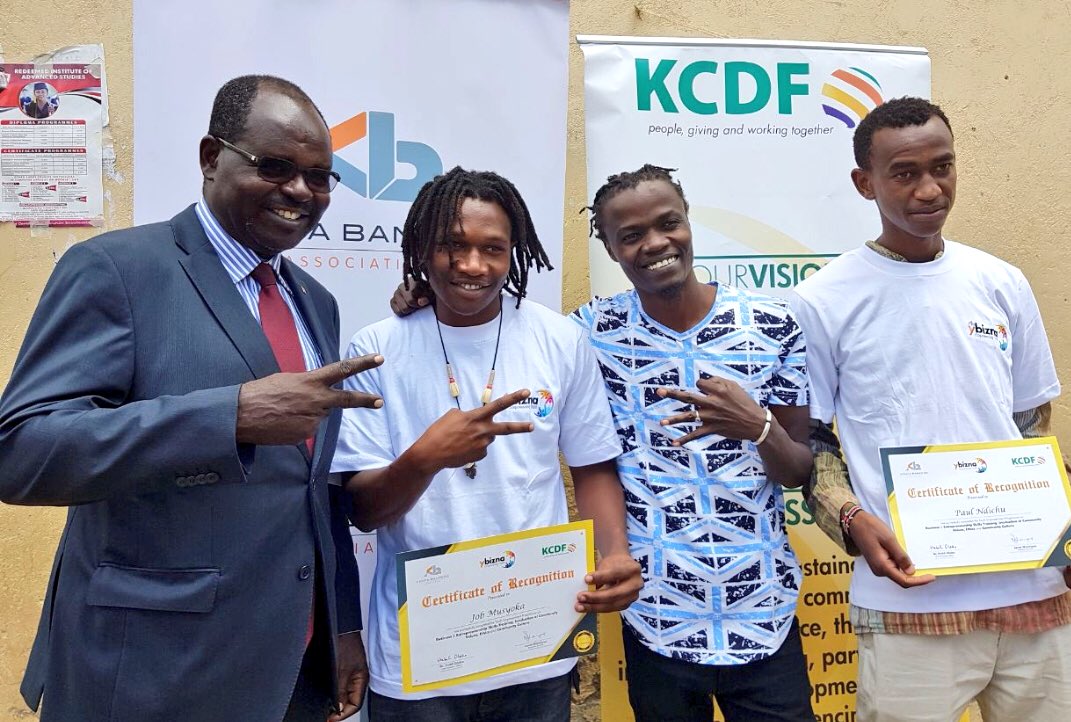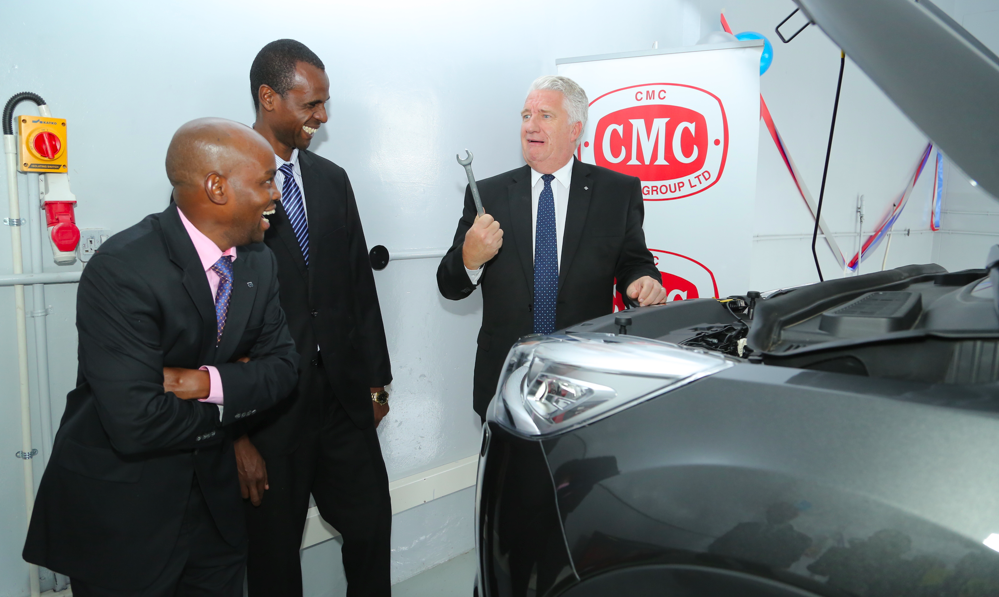More than 220 young men from vulnerable communities in urban informal settlements in Nairobi and Mombasa have successfully completed a five-month long entrepreneurship training programme. The “Y-Bizna” initiative sponsored by the Kenya Bankers Association (KBA) and implemented by the Kenya Community Development Foundation (KCDF) targeted youth in Huruma, Mathare, Kariobangi and Kisauni (Mombasa).
The programme exposes the youth to skills that empower them economically with the overall objective of ensuring that they become self-employed. Some of the topics covered include financial literacy, entrepreneurship and business management, and basic computer skills.
In the second phase of the programme, trainees are encouraged to form groups which come up with bankable business ideas. The startups will then access seed capital from the program and receive business mentorship support from KBA member banks.
According to the United Nations in the Human Development Index 2017 report, the rate of unemployment in Kenya is the highest in the East African region, hitting a new high of 39.1 percent. This makes the country’s unemployment rate one of the highest when compared to neighbouring Ethiopia, Tanzania, Uganda and Rwanda. Further, the World Bank estimates that about 9 million more jobseekers will join Kenya’s labour market by 2025.
“By engaging the youth through the Y-Bizna programme, the goal is to provide them with a sense of purpose, community and bond them to the Mkenya Daima ideals,” said the KBA chief executive Dr. Habil Olaka, during the graduation ceremony held in Huruma. “Our goal is to implement sustainable initiatives that target youth development and empower them economically,” he said.
Last year in conjunction with the Kenya Private Sector Alliance (KEPSA) Mkenya Daima Campaign, the umbrella body of the banking industry signed a partnership agreement with the KCDF. KBA committed Ksh.4 Million towards the programme of which Ksh 1 million will be disbursed as seed capital to the participating youth groups.
KCDF’s Executive Director Janet Mawiyoo said: “The KBA sponsorship has gone a long way in ensuring youth get requisite skills and values that enable them become productive role models in the communities where they live.”
She added that: “The partnership is a testament of how the private sector and development organisations can come together to address emerging issues in our communities, including disenfranchisement of young men. This programme has not only inculcated a sense of responsibility and pride in young men but exposes them to diversified livelihood opportunities,” said Ms. Mawiyoo.




